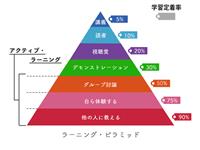Syllabus: Macroeconomics
Instructor: Gang Gong
Office: SEM South 533
Office Hours: Tue 2.00 – 4.00
Phone: 62788147
Email: gongg@em.tsinghua.edu.cn
Course Description
Macroeconomics is the most disputed, confused, yet excited field in economics. This course introduces you how economists think about those macroeconomic problems such as inflation, unemployment and recession, and how macroeconomic policies could be used to resolve these problems. We will find that economists may give you many different answers. Yet behind their different answers is the difference in the framework of macroeconomic analysis. The course will thus introduce you two major frameworks in macroeconomic analysis: the Keynesian macroeconomics and the Neo or New Classical macroeconomics.
Textbooks
Macroeconomics (2nd edition, translated in Chinese), by Olivier Blanchard, Prentice Hall Inc., 2000.
Macroeconomics (5th edition, translated in Chinese), by Robert J. Barro, Massachusetts Institute of Technology, 1997.
Macroeconomics (6th edition), by Rudiger Dornbusch and Stanley Fischer, McGraw-Hill Inc., 1994.
Grading, Exam and Homework
There will be some homework during the course. The mid-term exam will be taken in class. There will be no taken-in-class final exam. Instead, the students are requested to submit a project plus a seminar paper before the end of the semester. Your final grade will be accounted on your attendance (10%), homework (20%), project (20%), mid-term exam (30%) and seminar paper (20%).
Course Outline*
Part I: Introduction
Chapter 1: The Science of Macroeconomics
Chapter 2: The Macroeconomic Variables
Part II: Keynesian Macroeconomic Analysis
Chapter 3: The Product Market Analysis
Chapter 4: The Money Market Analysis
Chapter 5: The IS-LM Model
Chapter 6: Labor Market Analysis
Chapter 7: The Price and Inflation Analysis
Chapter 8: The Macroeconomic Policy Analysis
(Mid-term Exam)
Part III: Neo and New Classical Macroeconomic Analysis
Chapter 9: The Neoclassical Growth Model
Chapter 10: Some Behavior Analysis
Chapter 11: The Market Clearing Model
Chapter 11: More on Market Clearing Model
Chapter 12: The Challenge from New Classical Macroeconomics


